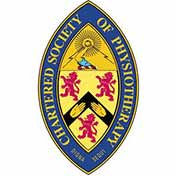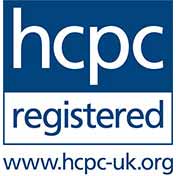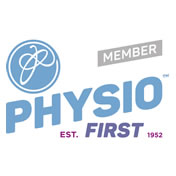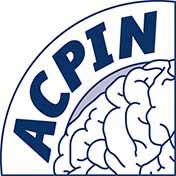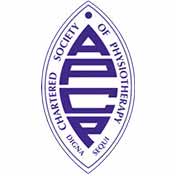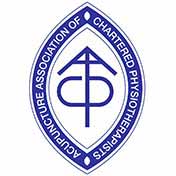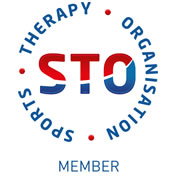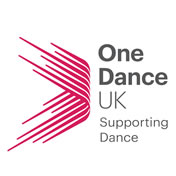At PEAK Physiotherapy we use up-to-date and evidence based treatments so that you will receive the most appropriate and effective treatment for your condition. Your treatment may include:
Manual Therapy
Manual therapy is a term that encompasses a variety of physiotherapeutic treatment techniques. Mobilisations are applied to joints to reduce stiffness and relieve pain and manipulations may also be applied to joints to restore normal movement.
 Soft tissue massage and manipulation is effective at reducing scar tissue, stretching tight structures, relieving spasm and overactive trigger points, and aiding the healing process.
Soft tissue massage and manipulation is effective at reducing scar tissue, stretching tight structures, relieving spasm and overactive trigger points, and aiding the healing process.
In addition to our experienced team of physiotherapists, we are fortunate to have our own Sports Massage Therapist who is qualified to provide a range of treatments, including deep tissue massage, connective tissue massage, pre-sport massage, neuro-muscular techniques and remedial (maintenance) massage.
Exercise Therapy
Personalised exercise programmes are devised with you to complete at home or in our gym facilities. You will be provided with specific exercises for your condition that address weak muscles, stiff joints, muscle imbalance and poor posture, as appropriate. We can devise exercise programmes that can be carried out at home, in your gym, or if needs be at work (!).
 All exercise programmes that we provide, are individually-tailored to you, your particular problem / injury, and aimed towards achieving your personal goals, be that returning to a high- impact sport, or managing to walk a particular distance without pain. Exercises chosen will be therefore goal-specific, whilst being under the guidance of a physiotherapist with specialist knowledge about normal movement and control.
All exercise programmes that we provide, are individually-tailored to you, your particular problem / injury, and aimed towards achieving your personal goals, be that returning to a high- impact sport, or managing to walk a particular distance without pain. Exercises chosen will be therefore goal-specific, whilst being under the guidance of a physiotherapist with specialist knowledge about normal movement and control.
We provide access for all our clients to PhysiApp®: Providing clinical exercises at your fingertips.
- Crystal clear and professionally narrated videos show you how to perform your exercises correctly.
- Always remember when to do your exercises thanks to in-app reminders.
- Once downloaded, access your videos even when you have no Internet access.
- PhysiApp® tracks your progress and feedback in real-time, allowing your healthcare provider to better support you based on clear outcome data.
Your Physio will set up your tailored exercise programme and send you an email with details of how to download the App along with your unique access code.
More details about PhysiApp® can be found here.
Acupuncture
Western acupuncture involves the dry-needling of symptomatic areas, primarily for pain relief.
 Trigger point release and intra-muscular stimulation can decrease pain, release tight soft tissues and promote healing. This technique can be used very effectively alone, or in conjunction with other physiotherapy techniques. For further information about acupuncture, please see our services section.
Trigger point release and intra-muscular stimulation can decrease pain, release tight soft tissues and promote healing. This technique can be used very effectively alone, or in conjunction with other physiotherapy techniques. For further information about acupuncture, please see our services section.
Pilates
Clinical Pilates used by physiotherapists is a modification of the traditional Pilates exercises developed by Joseph Pilates over 70 years ago. The emphasis is control of the deep stabilising muscles of the trunk which support the spine. Improved core stability can reduce postural pain and enhance efficiency of movement.
 Pilates has become more and more commonly used as a means to address spinal and joint pains, and adapted for use with ladies who are pregnant or post-natal to help with associated pains and recovery of normal movement after giving birth. It is a form of exercise that can therefore be aimed at any age, fitness or musculoskeletal condition and tailored to an individual's abilities and needs.
Pilates has become more and more commonly used as a means to address spinal and joint pains, and adapted for use with ladies who are pregnant or post-natal to help with associated pains and recovery of normal movement after giving birth. It is a form of exercise that can therefore be aimed at any age, fitness or musculoskeletal condition and tailored to an individual's abilities and needs.
Whilst classes can make pilates fun and more interactive, one-to-one sessions are sometimes necessary to focus on correcting technique and designing exercises to address the specific needs / problems of the individual. We are able to provide one-to-one pilates sessions to focus on particular problem areas, and we commonly incorporate a pilates-based approach to much of our physiotherapy rehabilitation.
Core stability training has become an essential component of current –day sports rehabilitation and conditioning. Elite athletes combine this type of exercise with their sport-specific training schedule in order to optimise their body's ability to move, and improve efficiency and speed. It is also hugely beneficial in preventing future injuries from occurring.
Hydrotherapy and Aquatic Physiotherapy
Aquatic Physiotherapy is therapeutic exercise in the pool environment. It is a comfortable way to reduce joint stiffness and improve muscle activity. This is a very gentle way to rehabilitate the body and as such is appropriate for very painful conditions. It is also an excellent medium for the injured athlete to rehabilitate from injury and maintain fitness whilst injured.
We can work alongside you in the pool to devise a suitable exercise programme and to promote safe and gentle movement, whilst you are recovering from an injury or rehabilitating a painful condition. Your pool-based programme may then be continued by yourself outside of your physiotherapy sessions. We offer aquatic physiotherapy for adult and paediatric conditions, and for the rehabilitation of neurological conditions, chronic problems and complex multi-trauma.
Sports Rehabilitation
Early and correct treatment of sports injuries is vital for the most effective recovery. Sports injuries are treated to ensure optimal recovery and return to sport as soon as possible. The sports person will be provided with a sport-specific rehabilitation programme, to include relevant core and joint stability work, and given advice to prevent re-injury.
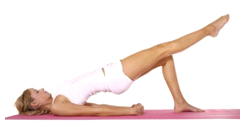 Manual therapy may be included within your physiotherapy sessions to address any underlying soft tissue tightness, joint stiffness and muscular trigger points. Biomechanical assessment may be necessary in order to address body alignment and movement control issues as part of the rehabilitation process (see below).
Manual therapy may be included within your physiotherapy sessions to address any underlying soft tissue tightness, joint stiffness and muscular trigger points. Biomechanical assessment may be necessary in order to address body alignment and movement control issues as part of the rehabilitation process (see below).
Ergonomic and postural advice
Ergonomic advice is invaluable at work and home to help prevent pain caused by repetitive movements, poor seating, desk position and computer alignment. You will also be advised on maintaining a good posture and shown how to do this to prevent aches and pains. For further information, please visit our Occupational Health Service section.
 As specialists in normal movement and body alignment, we can assess your spinal position and joint / limb alignment and advise you as to how to re-educate poor posture. Alongside this we can issue specific corrective stretches, exercises and core muscle stability work in order for you improve your overall posture, address any particular problems, and maintain good posture long term.
As specialists in normal movement and body alignment, we can assess your spinal position and joint / limb alignment and advise you as to how to re-educate poor posture. Alongside this we can issue specific corrective stretches, exercises and core muscle stability work in order for you improve your overall posture, address any particular problems, and maintain good posture long term.
Biomechanics
A biomechanical assessment with a physiotherapist, looks at posture and limb alignment in conjunction with how the various body parts are controlled during movement. Painful joints, muscular complaints and sports injuries commonly occur if there are underlying abnormalities in the way the body is positioned which subsequently affects the way in which stresses are taken through the tissues. This is particularly useful for those who experience recurrent injuries or develop pain for no apparent reason. We can carry out a biomechanical assessment if you are experiencing pain or movement difficulties, or as a preventative measure in order to identify potential problem areas and help to prevent future injuries. Correction of irregular joint positioning and movement control can help to relieve pain, improve overall movement efficiency and posture, and for some athletes, biomechanical correction has been known to improve race finish times and beat personal bests!
Read more about biomechanics.
Neuro Rehabilitation
Neurological physiotherapy is a specialist branch of physiotherapy treatment designed to help individuals overcome the difficulties associated with damage/injury to their central nervous system i.e. brain and spinal cord. Using a combination of manual and exercise therapies as described above, in conjunction with specialist neuro-physio techniques, rehabilitation aims to reduce symptoms and maximise function. For further information regarding our neuro service, please visit our main neurophysiotherapy site at www.yorkshireneurophysio.co.uk.

